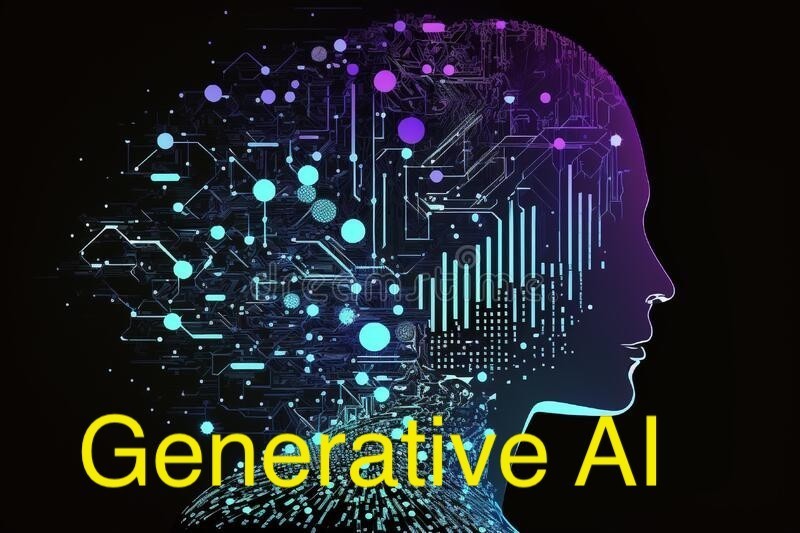From Text to Trends: The Power of GenAI Ushering in a New Era for Indian Business
By: Javid Amin
The once-futuristic concept of Generative AI (GenAI) is rapidly transforming from a distant dream to a critical necessity for businesses across the globe. In India, where economic growth and innovation are paramount, mastering these AI skills is no longer optional – it’s a key driver of national progress.
A recent NASSCOM report paints a powerful picture: AI has the potential to add a staggering $450-500 billion to India’s GDP by 2025. This surge signifies the transformative power of AI across diverse sectors. However, a concerning gap exists: only 22% of senior Indian executives feel confident in their understanding and application of AI.
This disparity highlights a pressing need for business leaders to bridge the AI knowledge gap. By actively upskilling in GenAI, they can unlock its full potential, propelling their organizations towards sustained growth and global leadership.
Mayank Kumar, Co-Founder and Managing Director of upGrad, sheds light on several key GenAI skills that are essential for Indian business leaders navigating today’s dynamic technological landscape. Let’s delve into these five crucial skills and explore their transformative impact:
1. Natural Language Processing (NLP): Unearthing Insights from the Textual Tapestry
Imagine having a powerful tool that can sift through mountains of text data – customer reviews, social media conversations, internal documents – and extract valuable insights. This is the magic of Natural Language Processing (NLP).
The global NLP market is expected to reach a staggering $43.3 billion by 2025, fueled by the increasing demand for improved customer service and the ability to analyze public sentiment.
Here’s how NLP empowers Indian business leaders:
- Enhanced Customer Service: Gone are the days of frustrating wait times and impersonal interactions. NLP can be harnessed to develop sophisticated chatbots that understand natural language, providing 24/7 customer support and resolving queries efficiently. This translates to happier customers and reduced operational costs.
- Data-Driven Decision Making: Sentiment analysis powered by NLP allows businesses to gauge public opinion on a real-time basis through customer reviews and social media conversations. This valuable feedback helps identify areas for improvement, leading to timely product enhancements and a more customer-centric approach.
- Streamlined Document Automation: Extracting key information from contracts, legal documents, and other text-heavy files can be a time-consuming and error-prone process. NLP steps in as a game-changer, automating document processing and significantly reducing manual data entry. This frees up valuable employee time and resources for more strategic tasks.
2. Machine Learning and Predictive Analytics: Peering into the Future for Business Success
Imagine having a crystal ball that can predict future trends and customer behavior with remarkable accuracy. This is the power of Machine Learning (ML) and predictive analytics.
According to McKinsey, businesses can leverage predictive analytics to achieve a 20% to 50% reduction in forecasting errors and a 5% to 10% increase in sales. This translates to more accurate sales forecasting, optimized inventory levels, and a more efficient supply chain.
Let’s explore how ML and predictive analytics empower Indian businesses:
- Smart Sales Forecasting: ML models can analyze historical sales data, customer behavior patterns, and market trends to predict future demand with exceptional accuracy. This allows businesses to allocate resources efficiently, prevent stockouts, and capitalize on potential sales opportunities.
- Reduced Customer Churn: Predicting customer churn – the likelihood of a customer leaving – empowers businesses to take proactive steps. Based on ML insights, targeted campaigns can be designed to address customer concerns and improve retention rates.
- Personalized Marketing Magic: Gone are the days of generic marketing campaigns. With ML, businesses can personalize marketing efforts based on individual customer preferences and past behavior. This laser-focused approach leads to significantly higher conversion rates and revenue growth.
3. AI-Driven Automation: Supercharging Efficiency
Repetitive tasks like data entry, invoice processing, and report generation can become a drain on employee productivity. Here’s where AI-driven automation steps in, streamlining business processes and freeing up human resources for higher-value activities.
RPA (Robotic Process Automation) acts as a tireless digital workforce, automating repetitive tasks with exceptional accuracy. Let’s see how AI-driven automation benefits Indian businesses:
- Boosted Productivity: By automating mundane tasks, employees are free to focus on more strategic initiatives, unlocking their full potential and contributing to organizational growth.
- Optimized Resource Allocation: AI can analyze employee skillsets and workload, ensuring optimal resource allocation and improved team performance.
- Enhanced Operational Efficiency: Automated workflows ensure tasks are completed consistently and efficiently, minimizing errors and maximizing operational efficiency. This translates to a significant boost in the bottom line
4. AI-Enhanced Decision Support Systems: From Gut Feeling to Data-Driven Confidence
Imagine having a powerful AI assistant that provides insightful recommendations to support strategic business decisions. This is the future envisioned by AI-enhanced decision support systems.
These systems leverage the power of business intelligence tools and predictive analytics dashboards to deliver real-time insights into key business metrics. This empowers leaders to make data-driven decisions with greater confidence.
Here’s how AI-enhanced decision support systems empower Indian business leaders:
- Real-Time Business Insights: Gone are the days of relying on gut feeling or outdated data. AI provides real-time insights into key performance indicators (KPIs), enabling leaders to make informed decisions based on the latest information.
- Predictive Scenario Planning: Predictive analytics dashboards help leaders visualize potential future business scenarios based on market trends and historical data. This allows for more effective planning and strategy formulation, mitigating risks and capitalizing on opportunities.
- Enhanced Operational Agility: Real-time data analysis allows businesses to react swiftly to market changes and adapt their strategies accordingly. This agility is crucial for success in today’s dynamic business environment.
5. AI for Sustainability: Merging Profits with Environmental Responsibility
While AI is a game-changer for driving better business outcomes, it can also be a powerful tool for promoting environmental responsibility. A PwC report estimates that AI applications in environmental management could contribute up to $5.2 trillion to the global economy by 2030, while simultaneously reducing greenhouse gas emissions by up to 4%.
Here’s how AI is transforming the landscape of sustainable business practices in India:
- Optimizing Energy Consumption: AI-driven systems can analyze energy usage patterns and identify areas for improvement. This leads to optimized energy consumption, reducing both operational costs and the environmental footprint.
- Predictive Maintenance Power: Imagine knowing when a piece of equipment is about to fail. Predictive maintenance models can anticipate equipment failures, allowing for proactive maintenance and extending the lifespan of machinery. This reduces waste and minimizes the need for frequent replacements.
- Sustainable Supply Chain Management: AI can streamline logistics and optimize transportation routes within the supply chain, reducing unnecessary transportation and associated emissions. This not only benefits the environment but also leads to cost savings for businesses.
By integrating AI into their sustainability initiatives, Indian businesses can not only comply with environmental regulations but also contribute meaningfully to global environmental goals. This fosters a positive brand image and resonates with environmentally conscious consumers.
Conclusion: The Power of GenAI – Shaping India’s Economic Future
As India strives to become a global economic powerhouse, embracing AI technologies is no longer a choice, it’s a necessity. By equipping themselves with GenAI skills, Indian business leaders can unlock a new era of innovation, efficiency, and global competitiveness.
This journey of AI adoption is not just about a strategic advantage for individual businesses; it’s a national imperative that can propel India towards achieving its economic aspirations. By fostering a culture of continuous learning and embracing AI’s transformative potential, Indian businesses can unlock a future brimming with possibilities, shaping not only their own success but also contributing to the nation’s economic and environmental well-being.



